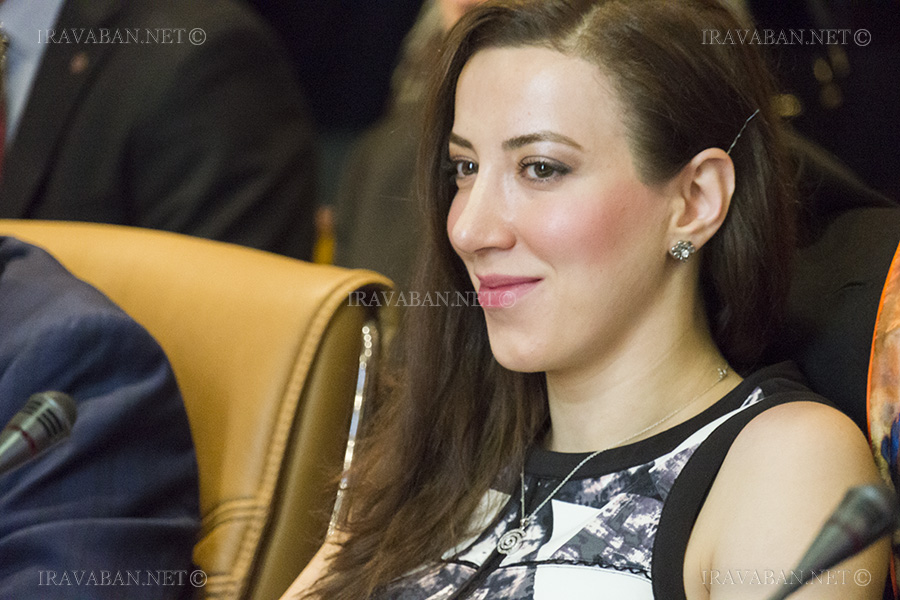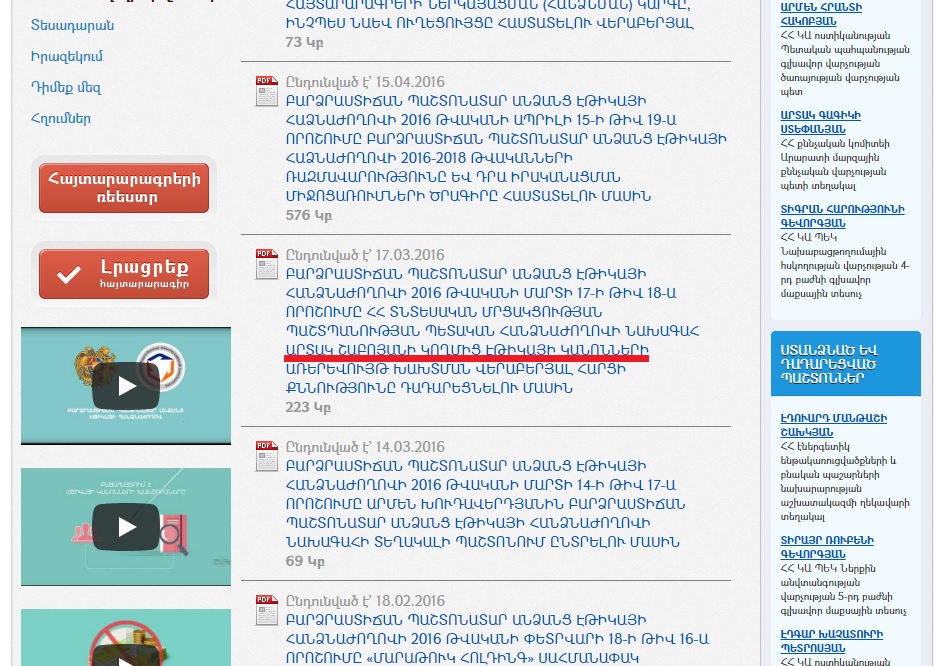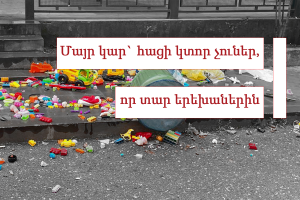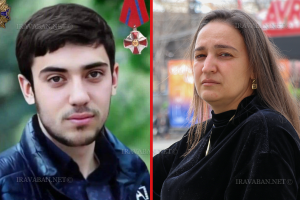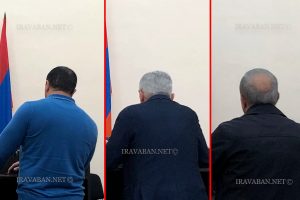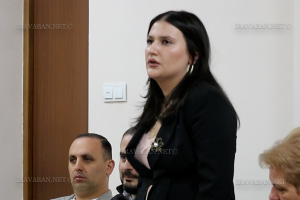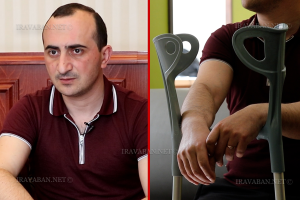During the past eight years of functioning the Commission on Ethics of High-Ranking Officials of Armenia has not disclosed any case of corruption. And in addition it has not disclosed or reported even a modest corruption. No case of illicit enrichment was not discovered as well, in case when for years, the media had been reporting and presenting analyzes on the officials’ property and profits, which could even serve as a basis for criminal cases.
During the whole period of its existence only 13 decisions were published on the official website of the Commission, but it turned out that in addition to the published, the Commission also made other decisions.
For example, in response to a request of Iravaban.net, the Commission on Ethics informed that in the period of 1 January to 28 February, 2016, the Commission on Ethics of High-Ranking Officials initiated 79 proceedings.
“5 of the proceedings have been initiated based on the publications in media on alleged violations that were in the jurisdiction of Commission (including the results of the investigation of the facts published on the website of Iravaban.net, 1 on the basis of the application, 73 on the basis of the Commission’s research (analysis), 3 appeals on alleged violations that are in the jurisdiction of the Commission are under review, at the same time, the Commission made 71 resolutions on the issues under its jurisdiction, 7 decisions on termination of the proceedings, 1 decision on termination of the investigation, and in 19 cases there were no grounds to initiate proceedings. “
That is, according to this reply, the number of decisions made merely during the mentioned period is several times higher than the number of decisions published on the official website.
The Commission on Ethics conceals its decisions and avoids presenting legal grounds
In response to our question, why the decisions were not published on the official website, the Commission responded: “Regarding the disclosure of the information referred to in your request, we inform you that the Commission is legally responsible for the protection of personal data. Disclosure of information about persons mentioned in the Commission’s decisions shall be permitted only in the cases provided for by law.”
Repeated request was sent to the Commission on Ethics, asking them to mention the provision of the law pursuant to which the Commission on Ethics bears responsibility on the protection of personal data, and based on which provision of the law does not provide the decisions made by the Commission on Ethics of High-Ranking Officials. And we received this reply:
“In response to your inquiry of 22 May, we inform that in accordance with Article 3 of the RA Law on Freedom of Information, “information is records/data of facts, people, subjects, events, phenomena, processes that are received and formed as defined by legislation, and inquiry is a written or oral application to the information holder with a view of seeking or getting information as defined by the following law. In this case, you require providing legal advice. “
This answer has nothing to do with the issues we sent, but it also gives rise to doubts. In fact, when you ask the surviving institution at the expense of the state budget to indicate the legal grounds why this or that information is not available to the public, it is treated as a legal advice.
Meanwhile, in Article 11, paragraph 3 of the RA Law on Freedom of Information, pointed out by them provides: ” In case of declining a written information request, information holder inform the applicant about it within 5 days in a written form, by mentioning the ground for the refusal (relevant norm of the law), time frame within which the decision of refusal was made, as well as the relevant appealing procedure.”.
This means that actually in our double request, we tactfully stated that they did not respond properly to the request for information.
Selective Approach to the Commission on Ethics
However, even if the commission protects the information of this or that person, it does it selectively. For example, on 17 March, 2016, the decision to suspend the examination of the issue of apparent violations of ethics by the head of the SCPEC Artak Shaboyan was published.
It is unclear why just this decision was published and no other decisions were published.
It is refers to the Law on Protection of Personal Data. This, by the way, was adopted on May 18, 2015, and came into force on 1 July, 2015. That is to say, from that moment, no decision should have been published, but yet, it was published, for example, the decision in Artak Shaboyan’s case.
On the other hand, in order to understand whether there are provisions that prohibit the publication of Ethics Commission’s decisions, we asked for official clarification from the Personal Data Protection Agency and the response from the Acting Chief of Staff, Gevorg Hayrapetyan, stated:
“According to Article 11 (1) of the same law, “1. A regime of publicly available information of personal data (phone directories, address books, biographical directories, private announcements, declaration of income, etc.) may be established by the data subject’s consent or in cases provided for by law.”
The relationships concerning to declaration of property, income and affiliated persons of the high ranking officials are regulated by the Law on Public Service, which defines who are considered as officials that are subject to providing declarations (Article 32), and also defines the order of publishing the declarations (Article 37). Consequently, within the meaning of the “Law on Protection of Personal Data ” defined by the RA Law on Public Service the information in declarations of the reporting officials, which are subject to publication, shall be deemed to be publicly available in the meaning of same law,. “
As it is known, in the case of publicizing declaration of officials, the information contained in some lines is protected and is closed for third parties. Consequently, the Ethics Committee may block some lines even if its decisions are made, but prefers to close the whole information in general.
The clarification from the Personal Data Protection Agency also states that the Law on Protection of Personal Data does not prohibit the processing of any personal data, including publication or transmission, and does not define the procedure and conditions for providing or rejecting to provide personal data by the state body.
“Hence it follows that certain laws or regulations governing the activities of a particular body may directly define permission or prohibit a transfer of some or all personal data. At the same time, it should be taken into account that state bodies are the entities that possess information in the meaning of the RA Law on Freedom of Information. In other words, the legality of transfer or refusing to transfer the data should be considered under the meaning of the RA Law “On Freedom of Information” and by combining the requirements of specific laws governing the activities of the data processor,” Gevorg Hayrapetyan said.
However, the Law on Public Service, which regulates the activities of the Commission on Ethics, does not define any provision according to which the Commission on Ethics may refuse to provide the media with this or that decision.
The Commission on Ethics avoids presenting its work
At the same time, Article 43 (5) of the Law on Public Service states: “The Commission on Ethics of High-Ranking Officials shall publish in the mass media information on disclosed cases of conflict of interest and the measures taken in that respect, during the month following the end of each.”
That is to say, the Commission should have already published in January-February of this year information on conflicts that were revealed. Notably, we sent a request to the Commission on Ethics on April 4, asking to provide information on whether they have published information on their work through the media and in which media they have published. They responded that the required information will be provided until May 4, due to the need to do additional work. However, the reply was dated only May 25, violating all the timeframe established by law.
In this reply, they referred to the publication of April 20 on their website, entitled “Results of the Commission activities in 2017 and 2018 , which also does not include information on the content of the decisions or their results. By the way, this was published after we had sent a request for information.
The question “what prevents this institution from talking about the content of its work, if the work has been actually done and done properly?” arises.

As to informing the press about their work, they said: “The Commission has conducted a study on the conflict of interests of high ranking officials during the period from October 2017 to March 2018; the results will be presented on 5 June.”
New Anti-Corruption Body
It is expected to form a new independent anti-corruption body, the Corruption Prevention Committee. The Law of the Republic of Armenia on Corruption Prevention Committee has come into force since April 10 of the current year.
The Committee will consist of 5 members. The President of the National Assembly shall form a competition board for the election of candidates for these members, which will hold the selection of commission members and submit the winning candidates to the National Assembly, which will appoint them for a term of 6 years.
This body will also be responsible for maintenance of the registry of property and income declarations, analysis of those declarations, conflict of interests and disclosure of corruption cases.
Let’s hope that people elected to this body will have a real will and experience of struggle against corruption and will not be the regular ethics committee.
And it remains to be hoped that in this body will be chosen people who will have the real will and experience of struggle against corruption and will not be ‘another regular’ Commission on Ethics.
Siranush Sahakyan, Chairman of the Ethics Committee of High-Ranking Officials in the photo.
Astghik Karapetyan

